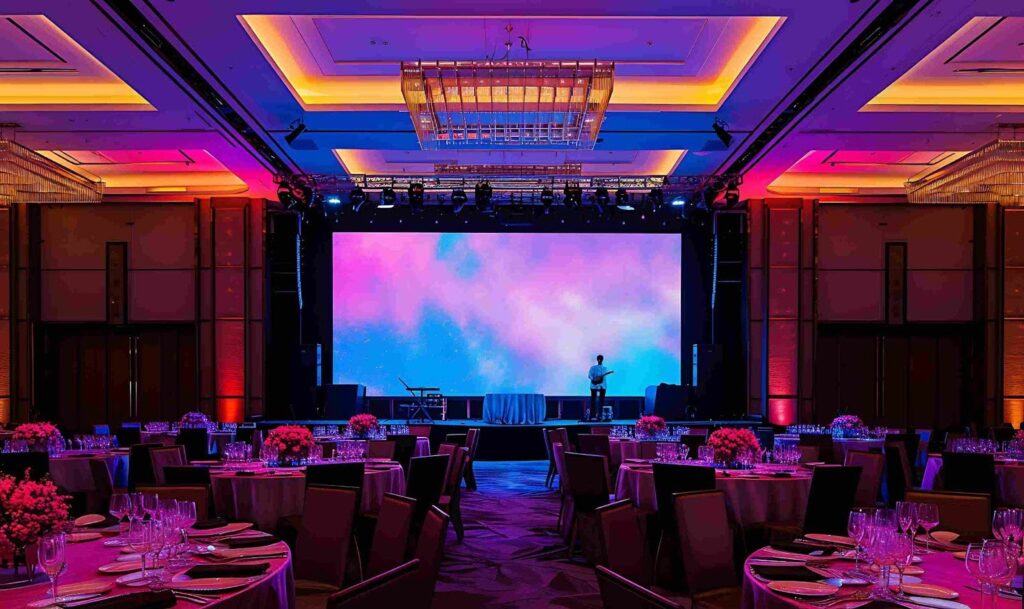Selecting the right venue is a critical factor in the success of any event. Whether it’s a business conference, wedding, product launch, or social gathering, the right venue sets the tone and ensures the smooth execution of your event. This guide will provide you with essential information about event venue rentals, helping you choose the best venue for your event.
1. Key Factors to Consider When Choosing a Venue
When renting an event venue, consider the following factors:
- Event Type: Different types of events require different types of venues. For example, weddings often require romantic and spacious venues, while business conferences need functional spaces with technical facilities.
- Venue Capacity: Ensure that the venue can accommodate your expected number of guests comfortably. Too small a venue may feel crowded, while too large a venue might appear empty.
- Location: Choose a venue that is easily accessible, particularly for attendees coming from different locations. Venues near public transport are often preferred.
- Facility Requirements: Make sure the venue offers the necessary facilities, such as sound systems, projectors, Wi-Fi, or catering services, depending on your event’s needs.
- Budget: Keep your budget in mind and select a venue that fits within it. Be sure to account for additional costs such as equipment rentals, catering, and service fees.
2. Common Types of Event Venues
Here are some of the most common types of venues for various events:
- Hotel Meeting Rooms and Banquet Halls: Perfect for business meetings, corporate events, weddings, and private parties. Hotels usually provide all-inclusive services, including audio-visual equipment, catering, and event planning assistance.
- Convention Centers and Exhibition Halls: Ideal for large conferences, exhibitions, product launches, and other major events. Convention centers are typically equipped with modern facilities to accommodate large crowds.
- Restaurants and Banquet Halls: These venues are perfect for weddings, company dinners, and other social events. They often include catering services and can accommodate a range of guests.
- Creative Spaces: Art galleries, design studios, or unique event spaces provide a distinctive atmosphere, making them perfect for smaller, more creative events like product launches, brand activations, or social gatherings.
- Outdoor Venues: Parks, gardens, beaches, and other outdoor locations are ideal for outdoor weddings, team-building activities, picnics, or large celebrations. Outdoor venues are typically more casual and flexible but require careful weather planning.
3. How to Rent an Event Venue
The process of renting an event venue generally includes the following steps:
- Define Your Needs: Identify the key features you need, such as venue size, location, facilities, and budget.
- Search and Shortlist: Use online platforms like Eventbrite, VenueHub, or contact event planning agencies to search for venues and narrow down your options.
- Site Visit: Always visit the venue in person before making your decision. This gives you the opportunity to assess the space, check the condition of the facilities, and confirm the location’s accessibility.
- Negotiate Terms: Discuss the rental cost, additional services, and cancellation policies with the venue provider. Ensure that all terms are clear and well understood.
- Confirm Booking and Payment: Once you’ve selected a venue, you typically need to pay a deposit or full payment to confirm the booking. Be sure to receive a formal contract and receipt.
4. Costs and Budgeting
Event venue rental costs vary depending on the type of venue, location, size, and duration of your event. Here’s a general cost range:
- Hotel Meeting Rooms and Banquet Halls: Typically range from a few hundred to several thousand units of currency, depending on the venue size, services, and equipment provided.
- Convention Centers and Exhibition Halls: These venues usually have higher rental fees, ranging from several thousand to tens of thousands of units of currency, suitable for large conferences and exhibitions.
- Restaurants and Banquet Halls: Rental fees for restaurants and banquet halls are usually based on the number of guests and the menu options, ranging from a few hundred to a few thousand units of currency.
- Creative Spaces and Outdoor Venues: These venues tend to offer more flexibility, and their rental costs vary widely depending on the uniqueness and location of the venue. You can expect to pay anywhere from a few hundred to several thousand units of currency.
5. Conclusion
Renting an event venue is a critical step in planning any event. By understanding your requirements, defining your budget, and carefully reviewing venue options, you can find a space that perfectly suits your needs. Whether you’re hosting a small gathering, a wedding, or a large conference, there are numerous venues available to meet a variety of needs.




